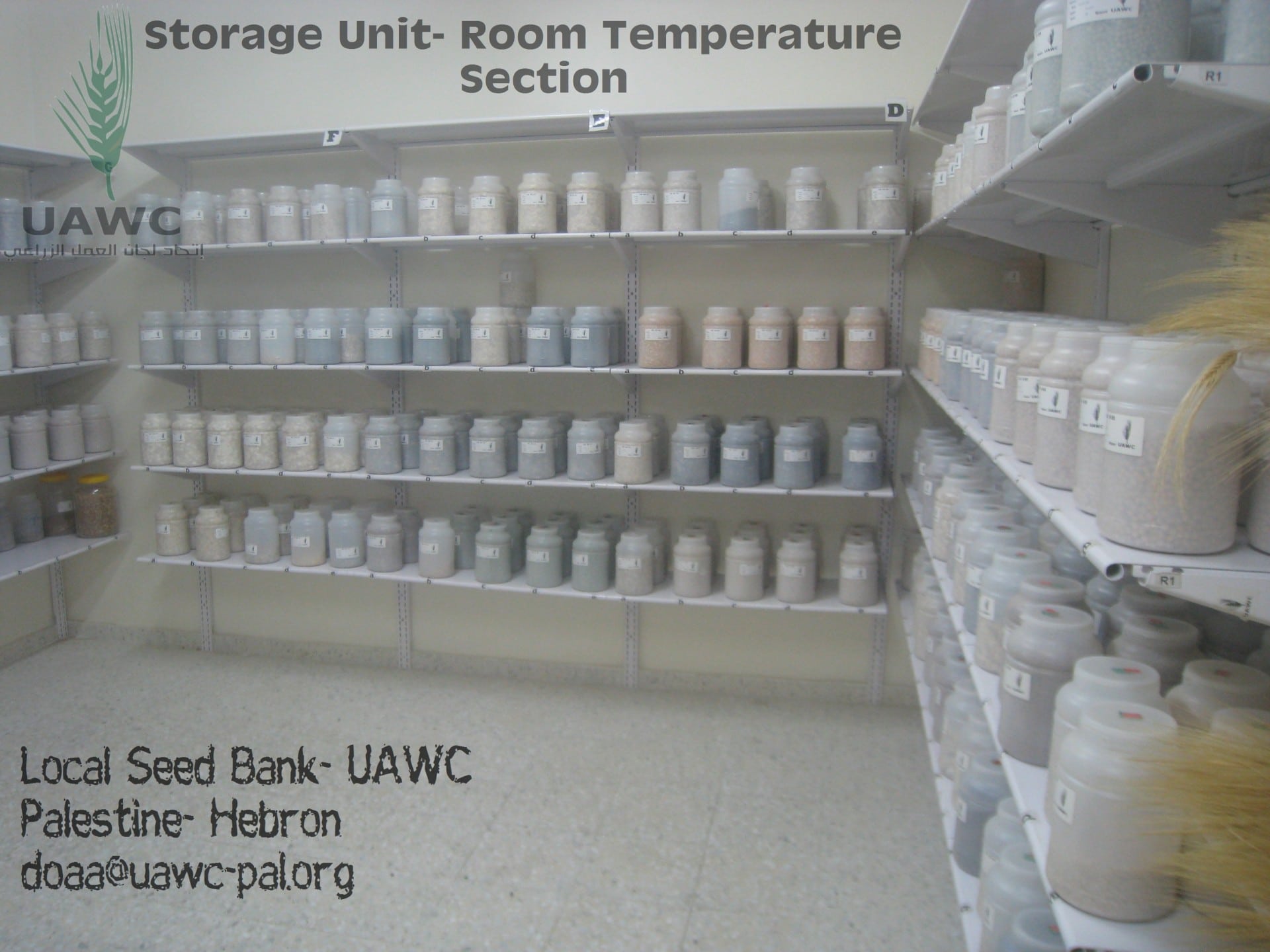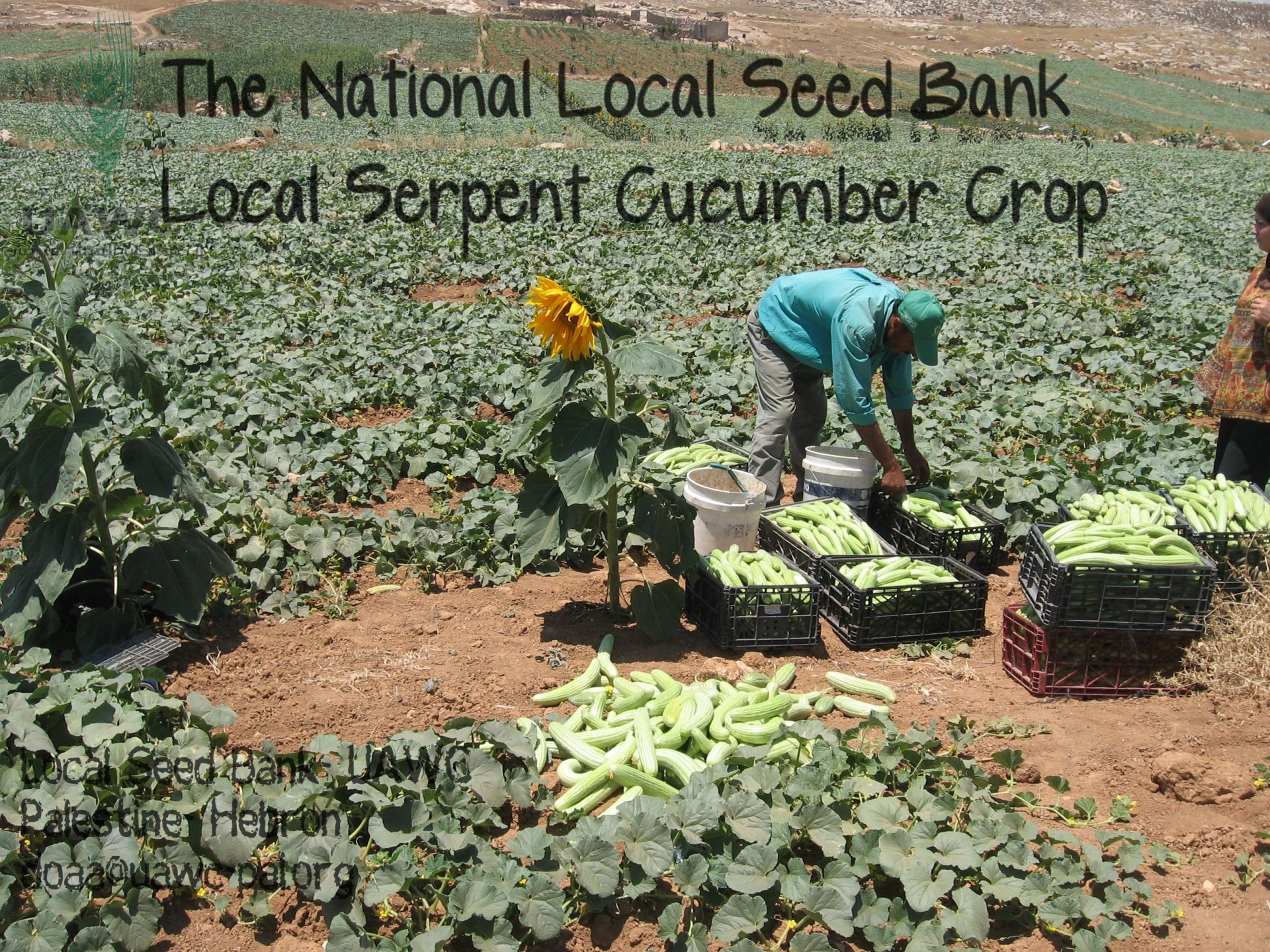Palestine (Hebron)
Home to more than 170,000 Palestinians, Hebron is the largest city in the West Bank. But an archaic Ottomon law allows government to seize unused land after three years, creating a tug of war between between the state and individuals fighting for rights to use the land. The Union of Agricultural Work Committees (UAWC) has established the innovative Seed Bank and farming education programme with the goal of empowering Palestinians to stake a claim on their native land.
With the slogan ‘Protecting Our Land and Supporting Our Farmers’, the community-managed plant database classifies 35 seed types and more than 200 species from at least 11 plant families. The facility also boasts a lab unit, a database unit (with records for each seed), a GMO detection unit, DNA extraction, a drying unit and a storage unit. As UAWC continues to grow, so will the ability to increase the quantity of seeds available.
Through cultivating native and organic plants, UAWC’s seed bank helps locals to preserve biodiversity in Palestine while preventing the introduction of genetically modified crops and working towards a sustainable, GMO-free future for this state’s fragile ecosystem. Do’a Zayed, PhD agronomist and Seed Bank coordinator, says intensively working the soil using local resources is the best way to avoid expulsion: “To have your independent voice and your independent thinking you have to have food sovereignty – and that starts with control over your own seeds.”
Bio
Natasha Drewnicki has rendered her insatiable nosiness into a career in journalism and PR. When not juggling projects in Barcelona, she'll be surfing in North Spain or Cornwall.
Project leader
Do'a Zayed, Coordinator
Support the Atlas
We want the Atlas of the Future media platform and our event to be available to everybody, everywhere for free – always. Fancy helping us spread stories of hope and optimism to create a better tomorrow? For those able, we'd be grateful for any donation.
- Please support the Atlas here
- Thank you!



